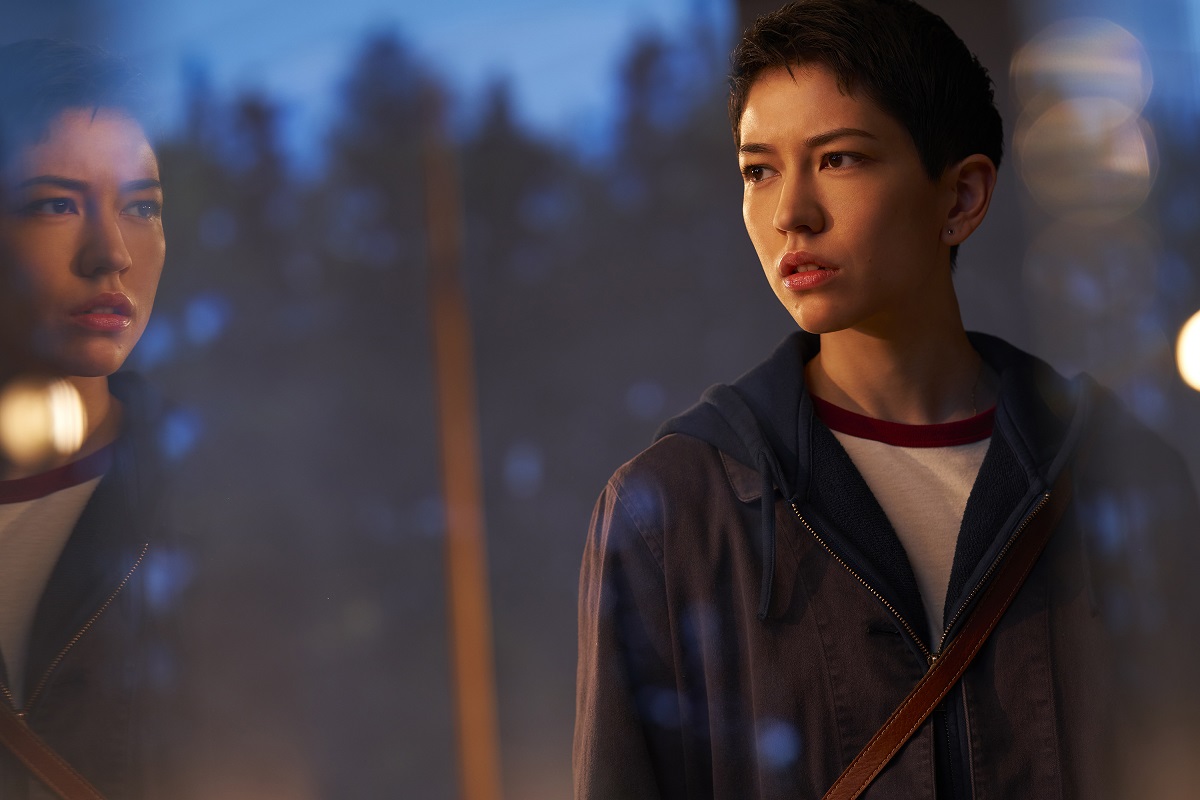The genius behind “Ex Machina” and “Annihilation” brings his brand of highly philosophical and intellectual sci-fi to the new ‘FX on Hulu’ section this week with the stunningly ambitious “Devs,” a great show that’s almost impossible to write about in a review. Like he did in his last two films, Alex Garland unpacks his themes slowly and deliberately, not revealing what “Devs” is primarily about until several episodes in. Not only do we not have a habit on this site of spoiling anything major that happens after a series premiere, but FX has been insistent about not revealing what this show really becomes. All I’ll say is that it’s a daring and new deconstruction of one of the basic tenets of human existence. At times throughout the season, Garland’s tendency to direct actors to affectless, almost monotonous performances will push casual viewers away, but I plead patience here. It’s ultimately an unforgettable and rewarding experience, and one that I really hope people are talking about and writing about once everything has been put on the table.
Lily Chan (Sonoya Mizuno, who was Oscar Isaac’s dance partner in “Ex Machina”) is a software engineer at a company called Amaya, run by the mysterious Forest (Nick Offerman). Amaya is like any number of Silicon Valley companies trying to do something that the rest of the competition in the tech sector isn’t even considering. There’s an elite branch of Amaya called “Devs,” and Lily’s boyfriend Sergei (Karl Glusman) is basically promoted to that exclusive department in the premiere. He goes to work in Devs, meeting fellow elites like the mysterious Katie (Alison Pill) and kindly Stewart (Stephen McKinley Henderson), but only after a serious grilling by security head Kenton (Zach Grenier). After his first day in Devs, Sergei disappears, and the show becomes Lily’s story, trying to figure out what exactly happened to her boyfriend and how it’s related to what they do in Devs.

We know the answer to the first question when it happens but the exact nature of the tech research in Devs unfolds slowly, dominating the mystery of the first half of the season. And it does so in a manner that feels more like a ‘70s conspiracy thriller than a traditional sci-fi film. There are covert meetings with dangerous people under bridges and in parking garages, and bursts of shocking violence in “Devs.” Garland has a storytelling model and Lily is cut from the same cloth as Domhnall Gleeson’s character in “Ex Machina” and Natalie Portman’s in “Annihilation,” the observer who then changes what’s being observed. He’s fascinated by human interaction with technology but not in a cold, observant way. There’s a push and pull between individuality and determinism in all of his work, and he digs deep into how systems are shaped by human input, need, and emotion.
Clearly, there’s a lot to chew on in “Devs,” but some of the performances can feel a bit overly familiar. Offerman gets better but starts the season as a bit of a tech messiah archetype that we’ve seen before. He’s a character meant to hold so many secrets as to his purpose in the first few episodes that his mysterious nature almost tends to parody. Similarly, Mizuno feels like a blank slate early in the season but she’s asked to do a lot in the back half of the year and she ultimately worked for me. What I liked most about the cast of “Devs” is how much Garland chose to work with a very tight ensemble. A lot of creators think high-concept TV means dozens of arcs, subplots, and speaking roles—“Westworld” often fell victim to this—but “Devs” is comparatively focused, allowing Garland, who wrote and directed every episode, to really sketch out each of his speaking roles into interesting characters.

“Devs” also simply looks better than most modern television, shot by Garland’s regular collaborator Rob Hardy. Working with Garland, they give the show a much warmer, denser color palette than it would have had in other hands. Even the production design of the Devs building fascinated me with its undeniably futuristic look that is also balanced by warm colors, which makes more sense when one learns Forest’s grand plan. It’s that kind of show, one in which design and visual choices were clearly influenced by theme and plot instead of merely functional. It’s a show that’s as constantly surprising in its artistic choices—for example, how an early fight scene is staged is startling—as it is in its narrative. It feels constantly just left-of-center, even when it’s treading familiar sci-fi ground.
There’s a scene late in the season in which Forest mentions how every generation seems to be speeding up development. For generations, we were happy in caves, painting on the walls. Now, there’s a new way to communicate and comprehend the world every few hours. Alex Garland wants to question and confront what this acceleration means for the human race. And he’s done so with one of the best new shows in a long time.
Whole season screened for review.












